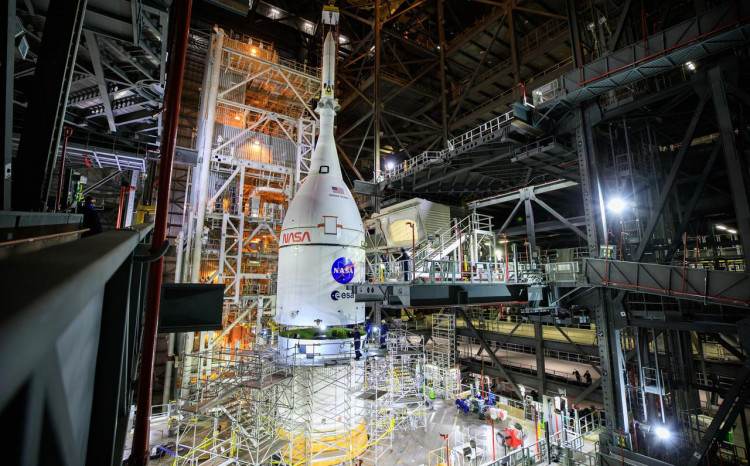There are concerns that some of the Artemis 1 moon mission's hardware may become outdated prior to launch now that it has been postponed once more to no later than Nov. 16.
Due to Tropical Storm Nicole's approaching arrival on Florida's Space Coast, the launch of Artemis 1, which would use a Space Launch System (SLS) rocket and two boosters to transport an uncrewed Orion capsule to the moon, was once again delayed.
The mission's two Northrop Grumman solid rocket boosters are approaching a number of critical milestones. If Artemis 1 does not launch by the middle of December, NASA will have to examine the boosters to see if they are still flight-worthy after their current expiration dates.
During a recent media conference, NASA officials informed reporters that, based on the most recent analyses completed by team members, some components of the SLS vehicle's rockets are approaching their existing expiration dates.
According to Cliff Lanham, senior vehicle operations manager of KSC's Exploration Ground Systems Program, a countdown begins as soon as a rocket is stacked. The countdown for the Artemis 1 vehicle is currently underway.
"When you stack your first segment on the aft segment, you start a clock that was originally 12 months," Lanhan said. "It's currently been analyzed up to 23 months, and that expires. One piece expires on the ninth of December of this year, and the other one is the 14th of December of this year."
He stated that on Dec. 15, another environmental exposure rating will expire.
Jim Free, associate administrator of the Exploration Systems Development Mission Directorate at NASA headquarters in Washington, D.C., noted that if Artemis 1 has not launched by those dates, the mission team will need to conduct additional analyses to see if the expiration dates on the rocket's various components could be extended.
"Each of them has a different revisit date - that's my term - when we have to go back and redo the analysis and look at the assumptions in the analysis," Free said. "And it's really more a function of when do we feel like those assumptions are no longer good and the boosters fall into that category."
The first mission of the Artemis program, Artemis 1, will send humans to the moon in 2025 or 2026, close to the lunar south pole with the ultimate goal of building a permanent base onsite.



